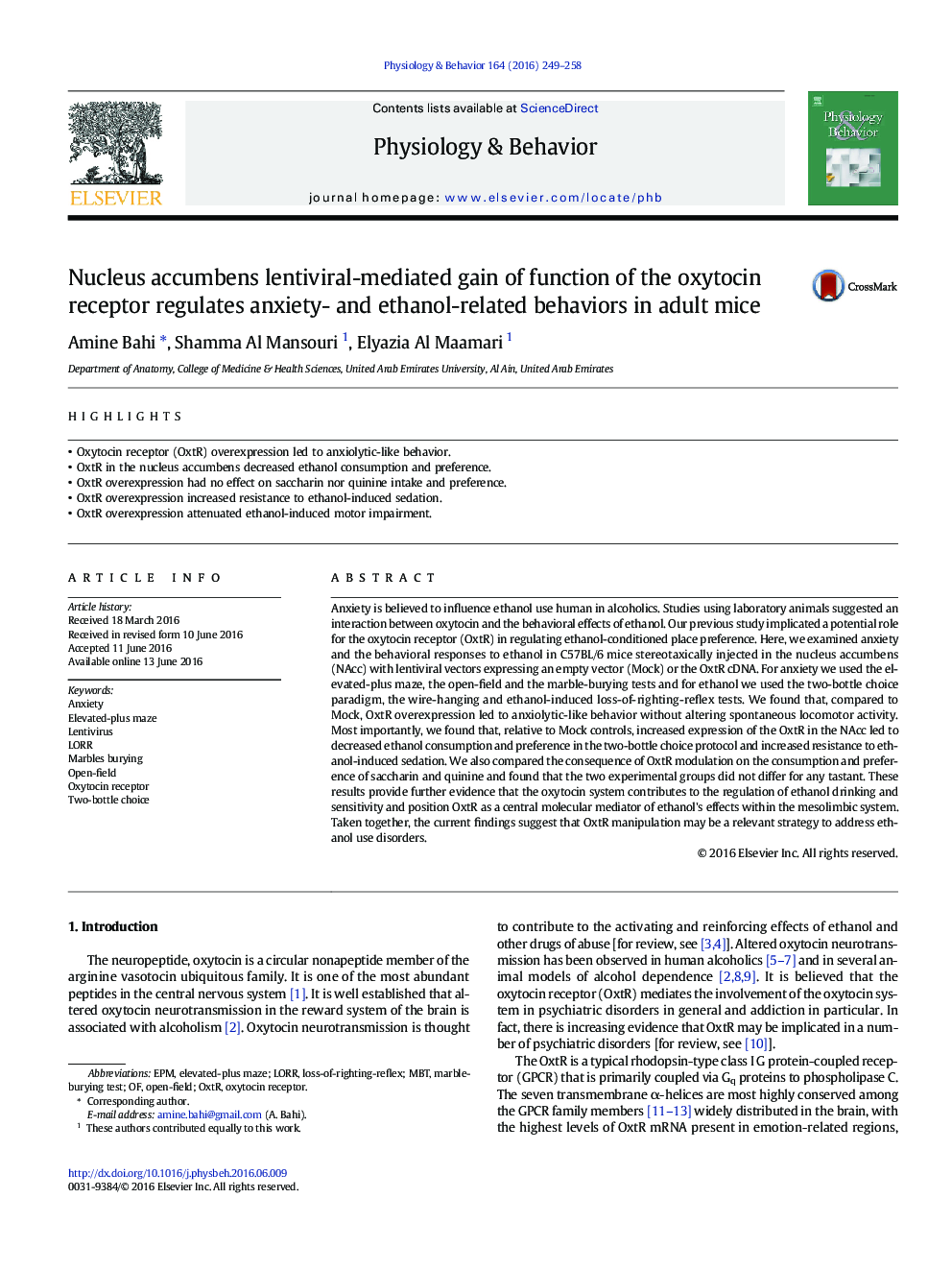| کد مقاله | کد نشریه | سال انتشار | مقاله انگلیسی | نسخه تمام متن |
|---|---|---|---|---|
| 5922628 | 1166279 | 2016 | 10 صفحه PDF | دانلود رایگان |

- Oxytocin receptor (OxtR) overexpression led to anxiolytic-like behavior.
- OxtR in the nucleus accumbens decreased ethanol consumption and preference.
- OxtR overexpression had no effect on saccharin nor quinine intake and preference.
- OxtR overexpression increased resistance to ethanol-induced sedation.
- OxtR overexpression attenuated ethanol-induced motor impairment.
Anxiety is believed to influence ethanol use human in alcoholics. Studies using laboratory animals suggested an interaction between oxytocin and the behavioral effects of ethanol. Our previous study implicated a potential role for the oxytocin receptor (OxtR) in regulating ethanol-conditioned place preference. Here, we examined anxiety and the behavioral responses to ethanol in C57BL/6 mice stereotaxically injected in the nucleus accumbens (NAcc) with lentiviral vectors expressing an empty vector (Mock) or the OxtR cDNA. For anxiety we used the elevated-plus maze, the open-field and the marble-burying tests and for ethanol we used the two-bottle choice paradigm, the wire-hanging and ethanol-induced loss-of-righting-reflex tests. We found that, compared to Mock, OxtR overexpression led to anxiolytic-like behavior without altering spontaneous locomotor activity. Most importantly, we found that, relative to Mock controls, increased expression of the OxtR in the NAcc led to decreased ethanol consumption and preference in the two-bottle choice protocol and increased resistance to ethanol-induced sedation. We also compared the consequence of OxtR modulation on the consumption and preference of saccharin and quinine and found that the two experimental groups did not differ for any tastant. These results provide further evidence that the oxytocin system contributes to the regulation of ethanol drinking and sensitivity and position OxtR as a central molecular mediator of ethanol's effects within the mesolimbic system. Taken together, the current findings suggest that OxtR manipulation may be a relevant strategy to address ethanol use disorders.
Journal: Physiology & Behavior - Volume 164, Part A, 1 October 2016, Pages 249-258